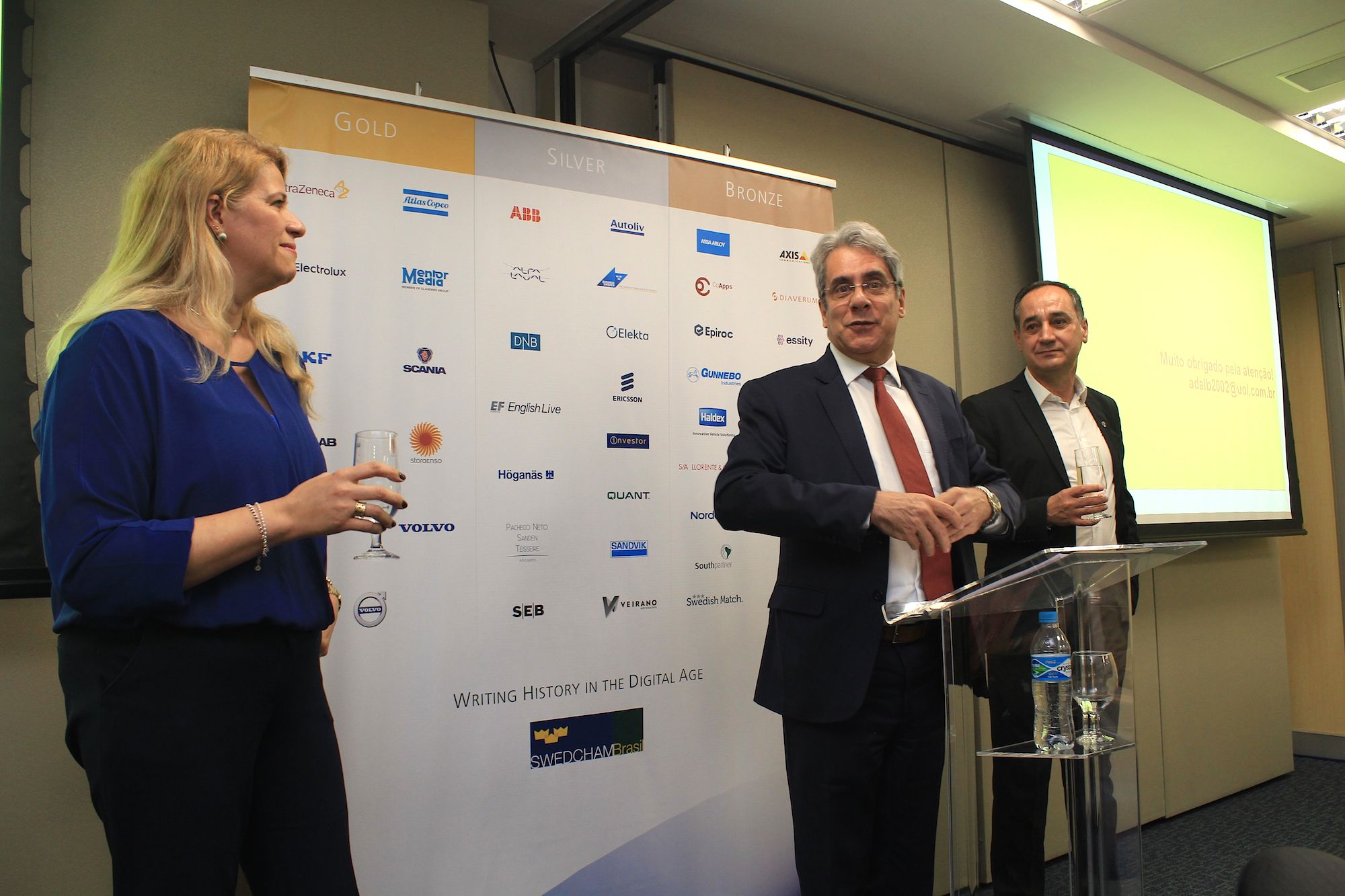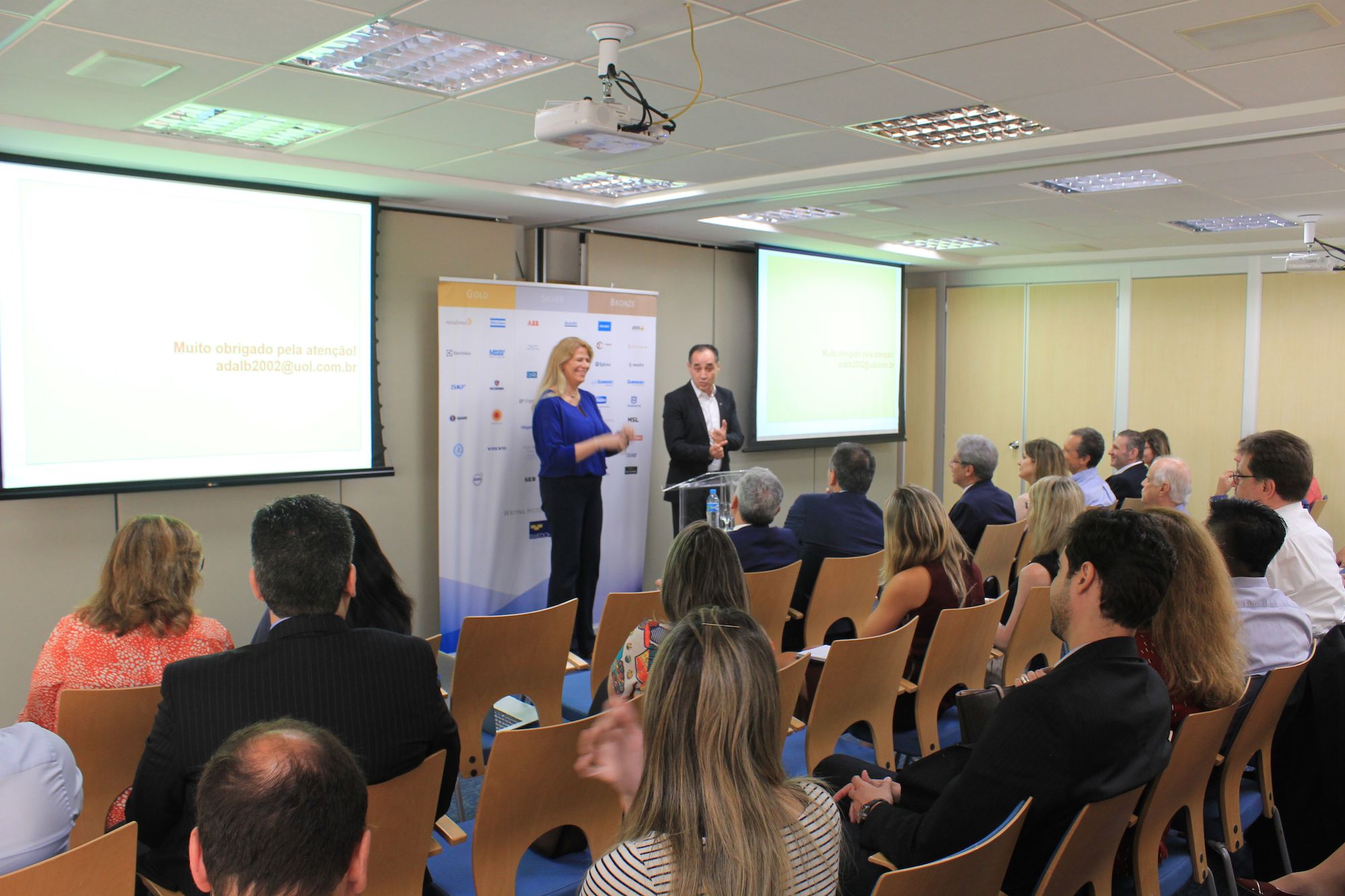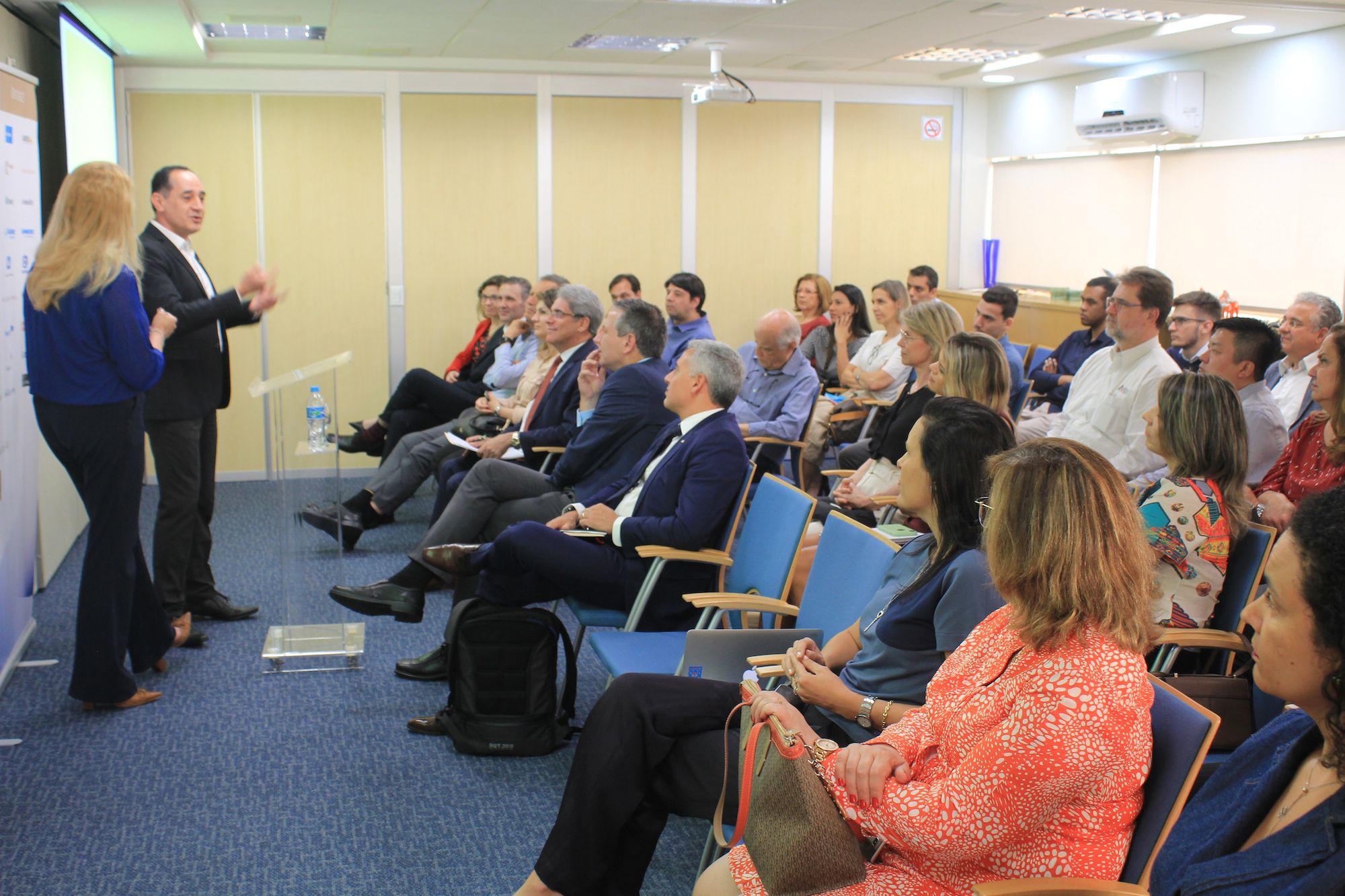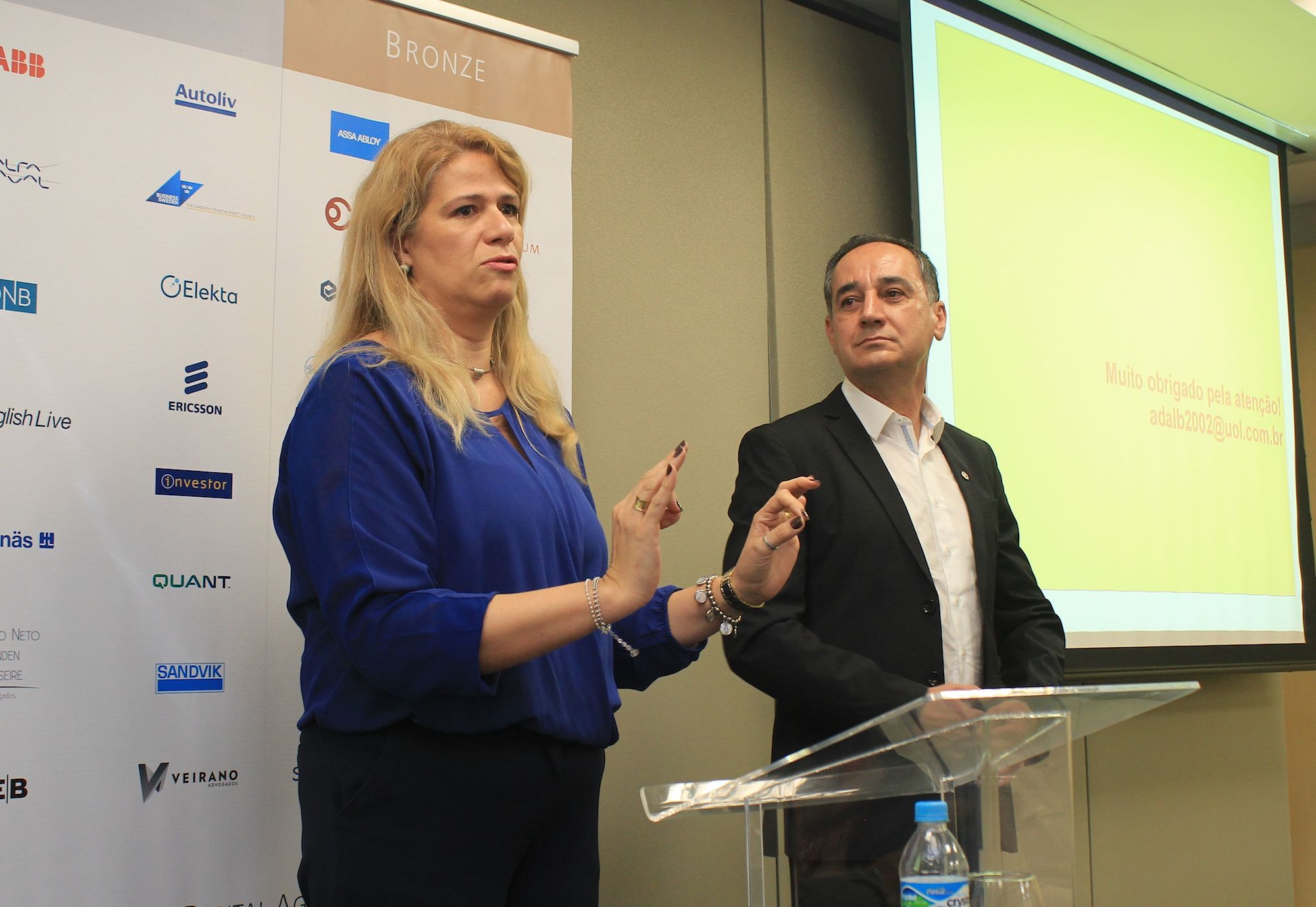
Priscila Santos with Adalberto Martins and Laércio Pereira.
New laws and regulations are changing the dynamics of labor relations in Brazil.
During a joint NBCC and Swedcham event in São Paulo on October 18, 2019, these changes and their extensive implications on people and on companies, were addressed by Judge, Law Professor and Writer Adalberto Martins.
Home office, labor contracts, outsourcing, technology and transformations of the work environment were all topics on the agenda for the event. Click here to see the full presentation (In Portuguese) Trabalho no seculo XXI

From the left; Jonas Lindström (Swedcham), Glorisabel Garrido Thompson-Flôres (NBCC), Adalberto Martins and his wife, Laércio Pereira, Priscila Santos, Juliana Meyer Gottardi and Alex Imperial (both NBCC).
«Home office is not a right, but a liberality, a possibility offered to employees, and it is still the relation between employer and employee that defines the relation, not the workplace itself. Today, new technology is making the use of home office more common», Adalberto Martins explained.
In his presentation, Mr. Martins listed the many advantages of using home office, that is «in residence teleworking», in Portuguese «teletrabalho no próprio domicílio». Teleworking, which is also the expression used in the Brazilian legislation, can however take place outside of the residence of the worker, for instance in a «telecenter».
«For the employee, advantages are flexible hours, increased productivity, reduced cost due to the fact that the worker does not need to commute to and from his or her workplace. For the company, advantages are cost reduction, more flexibility in the managing of the company, increased productivity, less absence and more available candidates in the selection process when there is a position to fill.»

Alex Imperial, Jonas Lindström and Swedcham chairman Sergio Quiroga da Cunha.
Social isolation and a difficulty to separate your professional from you private life are obvious disadvantages. The company have less control and the potential risk of confidentiality breaches are bigger. Dependance on technology and higher risk when it comes to issues related to HSE are other disadvantages.
Adalberto Martins talked about the rights and obligations of what he calls «teleworkers», based on the updates of Brazilian labor laws.

The event took place in Swedcham in São Paulo.
«The classic model of «telework» is working from home and applying new technologies. But a «teleworker» can also work from a tele-center or even without a fixed workplace. The law also regulates contract alterations, but lacks regulations on refund of expenses that a worker has when working from home and also on HSE issues, so it is advisable that a contract includes clauses on these issues», Mr. Martins said
«The employer must also keep in mind that the teleworker has the right to log off and it cannot be expected that he or she is available at all times.»
The Brazilian labor reform from 2017 (Lei 13.467/17) also addresses outsourcing, and brings several innovations. Mr. Martins outlined the main articles in the law that regulates different aspects of outsourcing.
«Outsourcing implies a triangular relation between the contractor of a service, the worker and the service company that he or she works for. What are the legal responsibilities of the contractor of a service and what are the rights of the outsourced worker?», he asked the audience.
 The same as a conventional worker, in the view of the experienced judge. Outsourcing should also be an alternative in cases when a company needs to hire someone specialized to provide a service, maybe a service outside of the area of specialty of the company. Outsourcing should not be used as a strategy to cut cost.
The same as a conventional worker, in the view of the experienced judge. Outsourcing should also be an alternative in cases when a company needs to hire someone specialized to provide a service, maybe a service outside of the area of specialty of the company. Outsourcing should not be used as a strategy to cut cost.
Another novelty is the possibility of signing intermittent contracts with workers, where the worker is called upon whenever the company needs him or her. The responsibilities of the company when it comes to rights are however proportionally equal to conventional contracts.
There are also other issues related to the use of new technologies in work relations that an employer needs to consider, like the use of social media by the workers and how this could reflect on the company´s reputation as well as the use of a company email for private, morally questionable or even illegal purposes.
After the presentation, a panel discussed the different implications of the recent changes in rules and regulations of labor relations.

Priscila Santos, Lawyer at PNST and Laércio Pereira, Human Resources Director at SAAB.
The panel was moderated by Priscila Santos, Lawyer at PNST. In her view, home office needs clearly defined rules, to avoid abuse.
Laércio Pereira, Human Resources Director at SAAB, shared his vast experiences from human resources in a variety of big companies, Brazilian and international.
«There are always pro-s and contra-s. Intermittent contracts are not suitable for all companies and still needs regulations, to guarantee the dignity of the workers. I do not believe that a company has the same level of commitment to an outsourced worker. I myself use home office, primarily because of the flexibility it provides. It is a tendency, but abuse happens. From a company point of view, a lot is about cutting cost, and this could also be the case when talking about home office and intermittent contracts. But the conditions offered need careful consideration. Letting an employee work from home also involves risk, like in the protection of sensitive data, and when talking about HSE and the working environment,» said Mr. Pereira.
By Runa Hestmann, NBCC journalist
(runa.tierno@nbcc.com.br)
:

